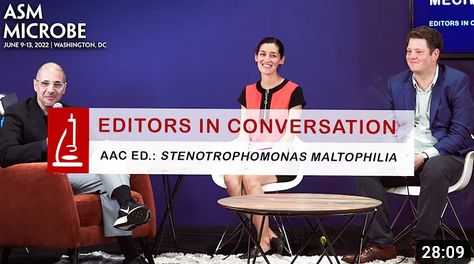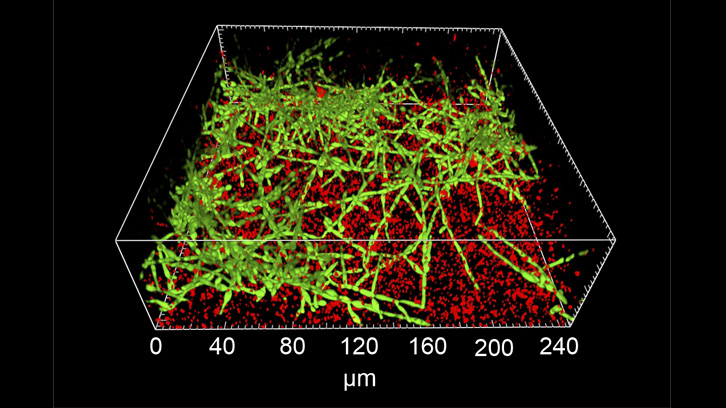
Antimicrobial resistance (AMR) claimed 5 million lives in 2019, posing a major challenge to global public health. National action plans (NAPs) are the primary method for guiding national strategies and actions to combat AMR. Although several NAPs have been developed, there is no comprehensive content analysis of these plans. A team of different researchers, including 3 members of our alliance, conducted a systematic assessment of NAP implementation in 114 countries.

The multidrug-resistant opportunist Stenotrophomonas maltophilia plays a central role in one of our projects: it is part of mixed biofilms in which the interactions between pulmonary opportunists and emerging antimicrobial resistance are studied (IPT2, further description HERE). At the highly respected American Society for Microbiology (ASM) conference "ASM Microbe 2022" held in June, there was intense discussion about this pathogen, which is increasingly developing resistance to conventional drugs. The video recorded live in Washington DC is available HERE .

Press Release of the Autonomous University of Barcelona (UAB), 05.09.2022
Researchers from the Bacterial Pathogenesis and Antimicrobials group of the Institut de Biotecnologia i de Biomedicina (IBB) and the Department of Genetics and Microbiology at UAB, have evaluated several compounds that have been shown to inhibit biofilm formation in important opportunistic human pathogens. The targets of these molecules include multidrug-resistant Gram-negative and Gram-positive pathogenic bacteria as well as the fungal pathogen Candida albicans. The study was carried out in a collaboration which involved three more European laboratories.

Since May, 31 we can be pleased about a new associated project in our alliance:
Vitality
More than 2 million children globally live with HIV, 90% of them in sub-Saharan Africa. Vitality is an EDCTP (European & Developing Countries Clinical Trials Partnership) funded clinical study in Zambia and Zimbabwe analysing the effect of vitamin D supplementation on health improvement of HIV-positive children.

Press Release of the Leibniz Institute of Freshwater Ecology and Inland Fishery (IGB) , 25.07.2022
Bacterial communities are often well adapted and stable in a particular environment whether it be a human mouth or a lake. Humans are altering environments at an increasing rate, none more so than in cities and their surroundings in the process of urbanization. In a study published today in the journal “Science of the Total Environment“, led by scientists from IGB and the Leibniz Institute for Zoo and Wildlife Research (Leibniz-IZW) as part of the Leibniz Research Alliance “Infections”, bacterial communities were examined in urban water bodies and wastewater in Berlin and compared to less anthropogenically influenced lakes from surrounding rural regions. The results reveal that urbanization introduces large amounts of nutrients, chemical pollutants and antimicrobial products, and thereby changes the makeup of the microbiome by favouring groups of bacteria that contain human pathogenic bacteria, with yet unknown consequences for ecosystem functioning and human and animal health.